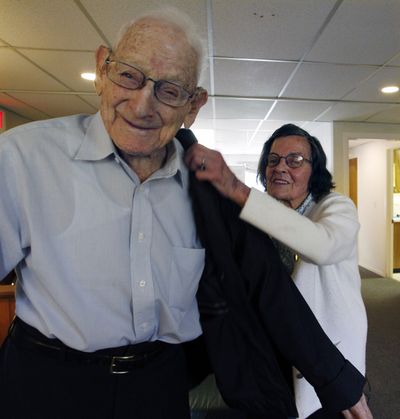Centenarians’ DNA may hold longevity clues

NEW YORK – George Eberhardt turned 107 last month, and scientists would love to know how he and other older folks like him made it that far. So he’s going to hand over some of his DNA.
He’s one of 100 centenarians taking part in a project announced Wednesday that will examine some of the oldest people with one of the newest scientific tools: whole-genome sequencing, the deciphering of a person’s complete collection of DNA.
Scientists think DNA from very old healthy people could offer clues to how they’ve lived so long. And that could one day lead to medicines to help the rest of us stay disease-free longer.
If you hope to reach, say, 105, “it’s very hard to get there without some genetic advantages,” says Dr. Thomas Perls, a geriatrics expert at Boston University.
Perls is helping find centenarians for the Archon Genomics X Prize competition. The X Prize Foundation, best known for a spaceflight competition, is offering $10 million in prize money to researchers who decipher the complete DNA code from 100 people older than 100. The contest will be judged on accuracy, completeness and the speed and cost of sequencing.
The contest is the second sequencing project involving the elderly to be announced this month.
Genome pioneer J. Craig Venter says the centenarian project is just a first step in revealing the genetic secrets of a long and healthy life.
“We need 10,000 genomes, not 100, to start to understand the link between genetics, disease and wellness,” said Venter, who is co-chairing the X Prize contest.
Eberhardt, of Chester, N.J., played and taught tennis until he was 94. He said he’s participating in the X Prize project because he’s interested in science and technology.